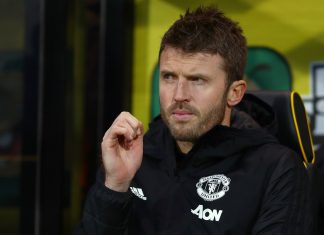When Stewart Donald arrived at Sunderland in the summer of 2018, hope returned to Wearside. The club had endured back-to-back relegations, tumbling from the Premier League to League One in the space of two seasons.
Donald’s takeover promised fresh ideas, sensible spending, and a renewed connection with supporters.
At first, the optimism was real. Fans were eager for change, and the new regime was open in its dealings. The club’s story reached a worldwide audience through the Netflix series “Sunderland ’Til I Die,” showcasing Donald as a man determined to restore the Black Cats’ pride. The early months brought a sense that Sunderland’s long road back to the top might be shorter than feared.
The turning point
That first season under Donald almost delivered instant success. Jack Ross guided Sunderland to the League One play-off final, only for Charlton Athletic to snatch promotion in the dying moments at Wembley. It was a crushing blow, but many believed it was simply a delay to the inevitable return to the Championship.
However, the summer that followed proved to be the start of a downward spiral. Recruitment misfires left the squad short of the quality needed to dominate League One. The most infamous of these was the last-minute deadline day signing of Will Grigg from Wigan Athletic for a record League One fee — a deal driven more by urgency than strategy. The move became a costly symbol of the ownership’s misjudgments.
From frustration to fury
Results stalled and the feel-good factor evaporated. Sunderland’s second season in the third tier failed to produce the progress fans expected. Off the pitch, questions began to mount over the club’s finances and the structure of Donald’s holding company, Madrox. News of a £9 million loan from US investment group FPP only deepened unease, with many supporters concerned about the risks involved.
By early 2020, the atmosphere had soured. Supporters’ groups organised protests, calling for clarity on the club’s future and a change in leadership. Banners and coordinated chants made it clear — patience had run out. Donald publicly stated his intention to sell the club, but with no immediate buyer, tensions only grew.
The final chapters
The COVID-19 pandemic disrupted football across the country, but it did little to ease the unrest at Sunderland. Donald stepped down as chairman in the summer of 2020, though he remained a shareholder. The search for a buyer finally concluded in February 2021, when 23-year-old Kyril Louis-Dreyfus acquired a controlling stake in the club.
Donald retained a minority share for two more years, before completing his exit in May 2023. For many Sunderland fans, it was the true end of a turbulent era.
A legacy of lessons
The Stewart Donald Sunderland story is now a part of the club’s modern history — a chapter marked by ambition that fell short, fan protests that shaped the narrative, and ownership decisions that left supporters feeling disconnected from their club.
It also offers a cautionary tale for other clubs. Early goodwill can disappear quickly if communication falters and results slide. Financial arrangements, even if well-intentioned, need clear and open explanation. Above all, fans must feel their club is moving forward with purpose, both on and off the pitch.
Sunderland moves forward
Under Louis-Dreyfus, Sunderland have worked to rebuild trust, focusing on a younger, hungrier squad and a more sustainable model. The club’s identity feels more aligned with modern football strategies, but memories of the Donald era linger as a reminder of how quickly fortunes can turn.
For Sunderland supporters, the past few years have shown that ownership matters as much as the players on the pitch. For football fans elsewhere, the story stands as proof that transparency, stability, and respect for the supporters are non-negotiable if success is to be sustained.








